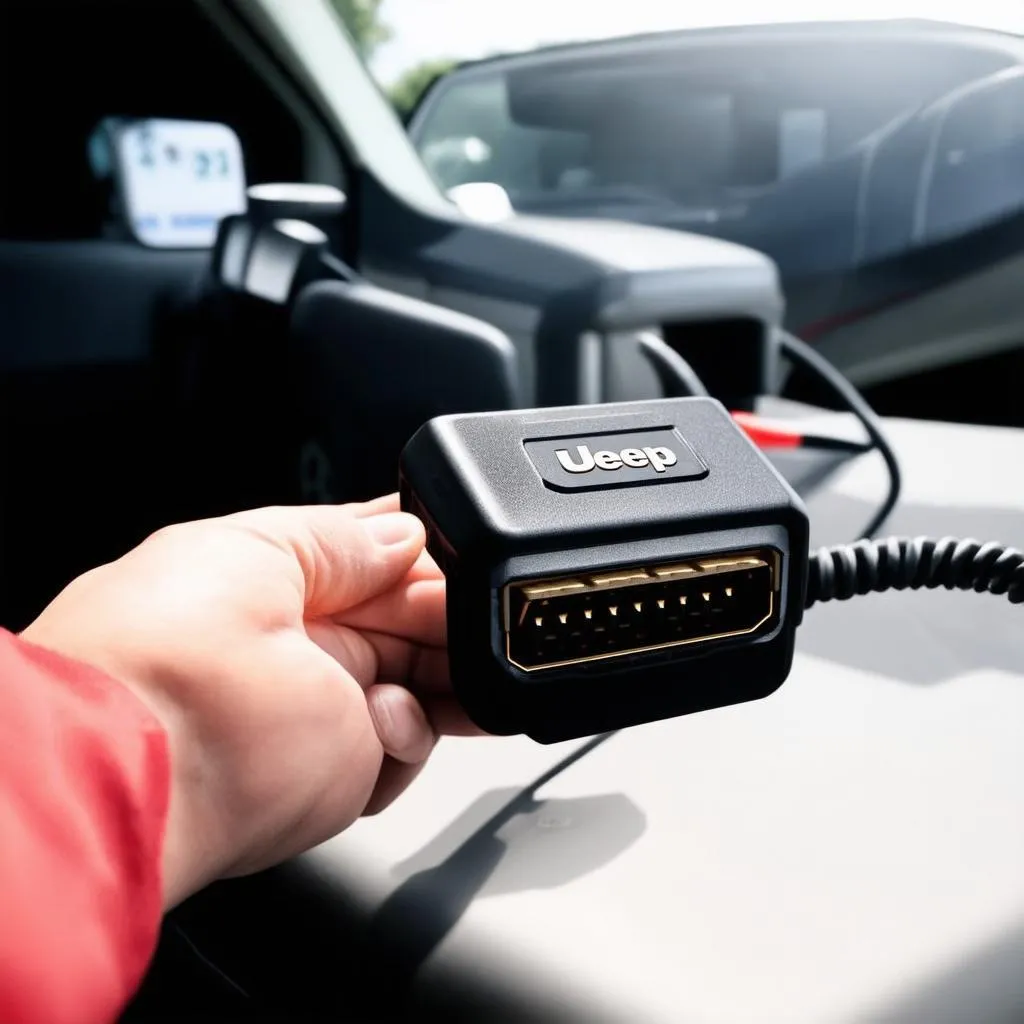Have you ever encountered a “Check Engine” light on your Jeep dashboard? It can be quite a frustrating experience, especially when you’re unsure what the issue might be. You might be tempted to ignore it, but trust me, that’s not the best course of action. Think of it as a crucial message your car is sending, alerting you to potential problems that need attention.
Understanding the Importance of OBD II Codes
The OBD II system (On-Board Diagnostics) acts as a vital communication tool between your Jeep and a diagnostic scanner. It’s like a language your car speaks to tell you what’s going on under the hood. When your Jeep encounters a problem, it sets a diagnostic trouble code (DTC). These codes are like a secret language that unlocks the mysteries of your Jeep’s health.
Deciphering the Jeep OBD II Codes List
Imagine this: You’re driving your Jeep down a scenic route, the wind in your hair, when suddenly, the “Check Engine” light flashes on, sending chills down your spine. It’s like a spooky ghost appearing in your car’s dashboard, sending a message you can’t quite understand.
That’s where the Jeep Obd Ii Codes List comes in handy! It’s like a decoder ring for your car, transforming those mysterious codes into clear messages.
Here’s a breakdown of how it works:
- OBD II Connectors: Your Jeep has a standard OBD II connector, usually located under the dashboard. This connector acts as the gateway between your car and a diagnostic scanner.
- Diagnostic Scanners: A diagnostic scanner plugs into the connector and communicates with your Jeep’s computer (ECU). Think of it as a translator that understands the language of your car.
- Reading and Interpreting Codes: The scanner retrieves the OBD II codes stored in your Jeep’s memory. The code list reveals specific issues like a faulty sensor, a malfunctioning ignition system, or a problem with the fuel system.
Common Jeep OBD II Codes and Their Meanings
The OBD II codes are standardized, so they apply to most vehicles, including Jeeps. However, some codes are specific to certain Jeep models.
Here are a few commonly encountered Jeep OBD II codes:
P0171: This code signifies a lean condition in the fuel mixture. It could mean that the fuel injectors aren’t delivering enough fuel, or that there’s an air leak in the system.
P0300: This code indicates a misfire in the engine. Misfires can be caused by various issues, including faulty spark plugs, ignition coils, or a problem with the fuel delivery system.
P0420: This code points to a problem with the catalytic converter. It might be clogged or malfunctioning, reducing the efficiency of your car’s emissions system.
Example: The Case of the P0171 Code
Imagine you’re driving your Jeep, and suddenly, the “Check Engine” light turns on. You plug in a diagnostic scanner and discover a P0171 code. Knowing what this code signifies, you can start troubleshooting.
You might check the fuel injectors, the fuel pressure regulator, or the air intake system for leaks.
How to Find the Complete List of Jeep OBD II Codes
You can find the complete list of Jeep OBD II codes in your owner’s manual, online resources, or by using a dedicated diagnostic tool.
Tips for Understanding Jeep OBD II Codes
- Consult a Repair Manual: A repair manual for your specific Jeep model can be a valuable resource for interpreting codes and identifying potential solutions.
- Use a Diagnostic Tool: Invest in a reliable diagnostic tool. Some even come with a code reader that translates the codes into plain English.
- Seek Professional Help: If you’re not comfortable troubleshooting on your own, don’t hesitate to contact a qualified mechanic. They have the expertise to accurately diagnose and repair any issues.
Common Questions About Jeep OBD II Codes
What are the most common Jeep OBD II codes?
The most common codes usually relate to issues like engine misfires, fuel system problems, and sensor malfunctions.
How can I clear an OBD II code on my Jeep?
You can clear an OBD II code using a diagnostic scanner. However, keep in mind that clearing the code doesn’t fix the underlying problem. The code will reappear unless the issue is addressed.
How can I prevent OBD II codes from occurring in my Jeep?
Regular maintenance is key! Make sure to get your Jeep’s oil changed regularly, replace worn-out spark plugs and filters, and check the fuel system for leaks.
Can I fix OBD II codes myself?
For some basic codes, you might be able to solve the problem yourself. However, if you’re dealing with complex codes, it’s best to seek professional help.
OBD II: The Key to Maintaining Your Jeep
Think of the OBD II system as your Jeep’s secret language, allowing you to understand its needs and keep it running smoothly. By understanding and interpreting these codes, you can catch potential problems early on, preventing costly repairs down the line.
For those who prefer a more spiritual approach, the OBD II system can be seen as a way to connect with your Jeep on a deeper level, understanding its signals and responding accordingly.
We Can Help
At TechCarUSA.com, we’re passionate about helping Jeep owners understand and maintain their vehicles. We offer a wide range of diagnostic tools and resources to empower you with the knowledge you need.
If you need help interpreting OBD II codes, feel free to contact us! We have a team of experts who can assist you in getting your Jeep back on the road in no time.
 Jeep OBD II Codes List
Jeep OBD II Codes List
Looking for more information?
Here are some related articles that might interest you:
- 05 Liberty No OBD to ECU
- 2017 Jeep Renegade OBD II Software for PC
- Auto Tuner OBD Compatibility
- 98 Grand Cherokee OBD Code P1494
- Innova OBD Scanners
Contact us today! Whatsapp: +84767531508
Don’t forget to share this article with your fellow Jeep enthusiasts!
 Jeep OBD II Scanner
Jeep OBD II Scanner
